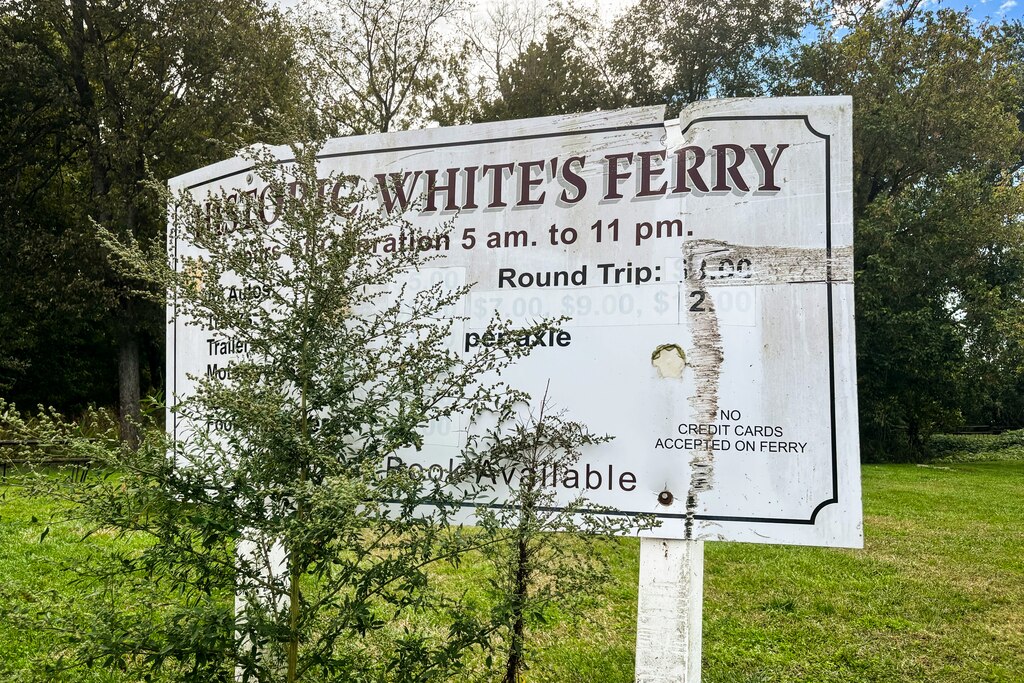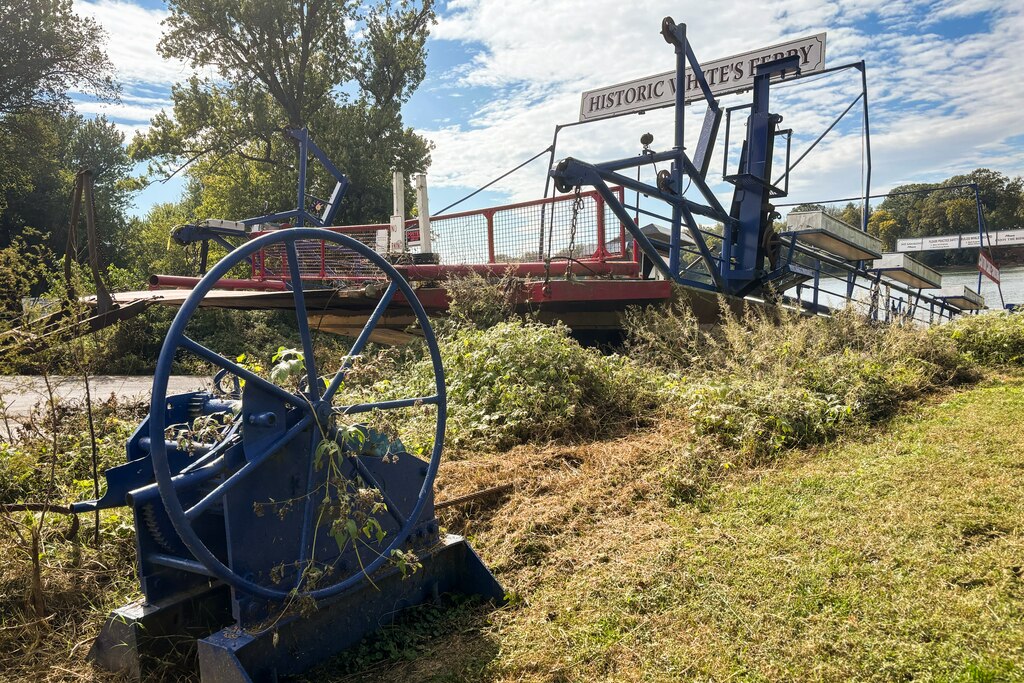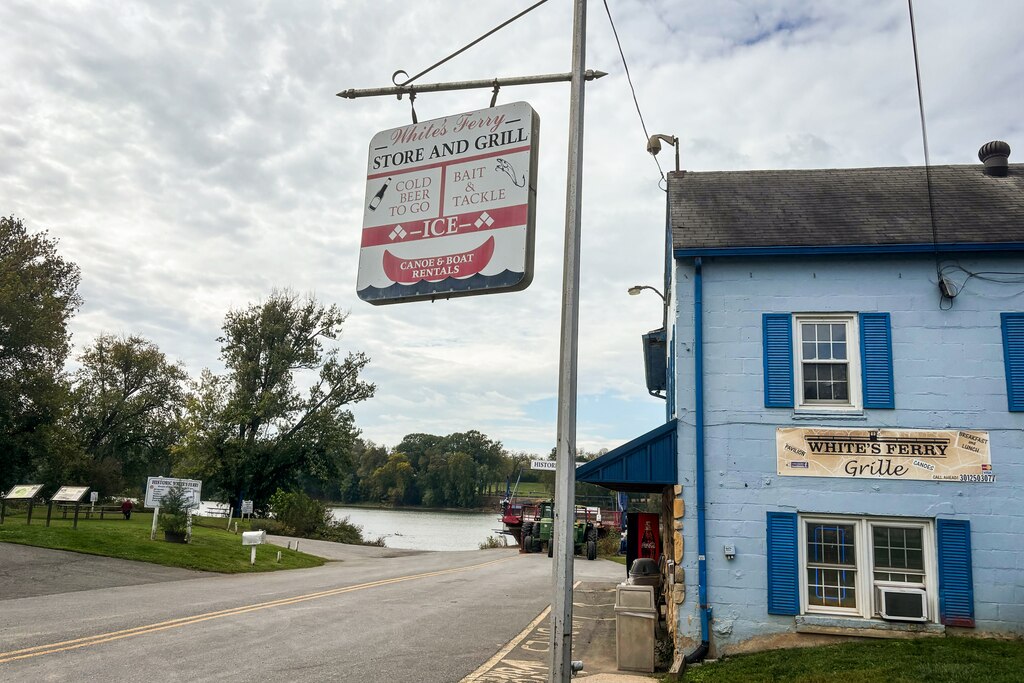When White’s Ferry closed in 2020, Poolesville Town Commission President Jim Brown thought it would be a brief setback for the northwest corner of Montgomery County.
But five years later, the historic commuter ferry that used to transport between 600 and 800 cars from Poolesville to Leesburg, Virginia, each day is still roped off.
“We had our arm cut off,” Brown told The Banner. “This was an artery to us.”
White’s Ferry — which had been in operation since the 1780s — stopped running five years ago because of a legal dispute between the ferry’s then-owner Herb Brown and Rockland Farm in Virginia, which owns the Virginia landing site.
A 2020 court case established that there was no public landing site for the ferry on the Virginia side. The only option to restart the service would be to negotiate with Rockland Farm, which wanted to charge a toll for every car that drove on its land.
Read More
Then in 2021, Chuck Kuhn, a Virginia-based entrepreneur, purchased the ferry and the Maryland landing site with the hopes of quickly reopening the ferry. Local historian Link Hoewing recalled a meeting in August of that year in which Kuhn said, “We’re going to get it open in two weeks, no matter what.”
That didn’t happen.
On both sides of the Potomac, ferry users wonder what’s standing in the way. The absence of the ferry, particularly in Maryland, is depressing the local economy. It’s forced drivers to find longer, alternative routes and robbed the region of some ferry-related traditions and holiday celebrations.
Montgomery County set aside $3 million to help kickstart reconciliation between the feuding parties. But so far, nothing has worked.
The Banner talked to local leaders, businesspeople and ferry fans to find out what stopped White’s Ferry, how Poolesville is faring without it and whether there’s any hope that it might resume.
There is a glimmer of hope. The two parties who control the ferry’s future are apparently talking to one another.
“Negotiations are ongoing and remain confidential,” said Montgomery County Department of Transportation spokesperson Emily DeTitta.
Life without the ferry
In April, Kuhn released a statement that spoke to the urgency of reopening the ferry.
“Our goal since purchasing the defunct ferry has always been to get it reopened,”the statement read. “This crossing has served as a local economic engine and is a piece of our history. Too many businesses and residents have been hurt by its closure.”
Asked recently about progress toward a restart, a spokesperson for Kuhn pointed a reporter toward the statement.
Libby Devlin, the owner of Rockland Farm, did not respond to requests for comment from The Banner.
Brown said the ferry is mired in a “Hatfields and McCoys” spectacle that has pulled attention away from those who have been inconvenienced by the loss of the ferry and others who have suffered serious economic hardships.

Among the inconvenienced: those who used the ferry to get to Dulles Airport and now have to navigate heavy traffic. Among those whose lives have been upended: Brown and Hoewing said they know people who have moved to Virginia because their commutes to work became too difficult without the ferry.
Last year a bunch of kids showed up for the first day of basketball practice and found they had no coach because the coach tired of the ferryless commute to his job in Chantilly, said Brown, who runs a youth basketball program in Poolesville,
“The parents had to cobble together,” Brown said. “That’s how thin our infrastructure is here.”
Local leaders have limited options to prod the ferry back into business.
County and state governments have no authority over the land since it is privately owned and cannot force the two landowners to come to an agreement. Representatives for Loudoun County Administrator Tim Hemstreet and Board of Supervisors Chair Phyllis Randall did not immediately respond to requests for comment Tuesday.
“This has been extremely frustrating,” said Montgomery County Council member Marilyn Balcombe, whose district includes Poolesville. “If you don’t have a relationship with the ferry, you don’t get how important it was.”
A free ferry?
Kuhn has offered a possible solution to the impasse. In April, he offered to donate the ferry and its assets to Loudoun County after Montgomery County Executive Marc Elrich declined the same offer. Elrich instead offered $3 million to the disputing parties to resolve the impasse.
“After years of fruitless effort, I have concluded that the only way the ferry can restart is through your action,” Elrich wrote in a letter to the landowners. “I implore you to look past the fraught history of this disagreement and . . . restore this vital service.”
Elrich recommended that the county spend the funds through its Capital Improvements Program. The subsidy includes $1.5 million in state aid recommended by Gov. Wes Moore and approved by the Maryland General Assembly in the state’s fiscal year 2026 budget.

Elrich is matching the state funds with $1.5 million from the county and Town of Poolesville. The County Council would have to approve the expenditure if it was accepted by the landowners.
Elrich’s plan would require the two owners to come to an agreement by July 1, 2026. He also offered them the support of the country transportation department to help in a reopening. The $3 million could be used to acquire property rights and purchase equipment for the ferry.
Kuhn doesn’t like Elrich’s plan. And Elrich doesn’t like Kuhn’s.
The county executive declined the the ferry owner’s donation proposal because, he said, it it did not include the land, which Kuhn also owned, that would be required to access and operate the ferry.
Elrich said the compensation requested to use the property would drive costs significantly higher “than would be feasible for Montgomery County taxpayers to shoulder.”
Kuhn quickly rebuffed the $3 million incentive when it was offered this spring.
“In terms of the county executive’s unexpected and unsolicited $3 million proposal, [Kuhn] has never asked for or expected any funds from the taxpayers of Montgomery County,” Kuhn’s company said in a statement following the April 2025 offer.
John Speelman, owner of Poolesville Old-Fashioned Hardware on Fisher Avenue, said he’s frustrated with the county’s handling of the issue.
“The county should have taken [the donation] and turned it into a park, but they just abandoned it,” Speelman said.
Balcombe said she understands why her constituents are frustrated. Some of them have asked if eminent domain could be used to acquire the land needed to run the ferry. It can’t, she said, because the state of Maryland doesn’t have any jurisdiction over the state of Virginia.
“It is frustrating that this is up to two private individuals and we have no jurisdiction, and it’s hard for constituents to accept that answer,” Balcombe said. “They feel like we’re not doing our best. And I get it.”
‘We need the ferry’
On Fisher Avenue, one of Pooleville’s main commercial streets, many business owners long for the day the ferry will reopen.
Raj Maskey, the owner of Village Beer and Wine, used to count on traffic from a stream of ferry commuters. The ferry’s absence, he said, has hurt his bottom line: “We need the ferry to open back up now.”
Devin Ramazon, owner of White’s Ferry Grill, at the ferry’s landing dock, purchased the popular restaurant in 2019, hoping to serve the ferry’s passengers. The impacts of the COVID-19 pandemic cut the business’s profit margins by 20%. But that was on top of the ferry’s departure.

“Closing the ferry hit us dramatically and forced us to rethink how we can manage to stay alive as a business,” Ramazon wrote in testimony to the Fair Access Committee, an organization that advocates for services for Poolesville residents.
Now, the grill primarily relies on business from cyclists and runners who use the C&O Canal path and people who fish on the waterfront. But that business gets slower as temperatures drop. “We need the ferry back and we need it now,” he said.
Alex Markoff, the owner of Calleva, a Poolesville-based outdoor education program that partners with schools, said many of his staffers used to take the ferry from Virginia to come to work. “I think people have adjusted, sadly,” Markoff said. “We’ve gotten used to driving up and around. But it’s not convenient.”
While Calleva is still thriving, schools that used to catch the ferry to get to its home base can’t offer a historic ferry ride to their students anymore. The ferry was also part of Calleva’s annual Halloween fundraiser: Markoff’s Haunted Forest. Virginia families would take the ferry to get to the event, and the previous owners of the ferry would decorate it for the holiday, Markoff said.
“These lines would back up on the other [Virginia] side to get on the ferry for the haunted forest,” Markoff said. “It was a great, fun festive event.”
Then there are the businesses that never came to town because there’s no ferry. Brown said that he’s spoken several entrepreneurs who abandoned plans to open in Poolesville after learning there was no solid plan to reopen the ferry.
“If this one barbecue place had come as it had originally planned, it would have filled our biggest vacancy in town and then taken what is probably our least prolific shopping center and turned it into one of our most vital and vibrant,” Brown said.
Is the ferry that powerful? Some think so.
But Balcombe said there’s a common misconception that the closure of the ferry led to the shuttering of the town’s only grocery store, Selby’s Market. It closed in 2012, before the ferry ceased operations.
Still, Balcombe continued, it’s been difficult to attract a grocery store to the area — and the loss of the ferry isn’t helping. In a small town with only two family physicians and no grocery store, she said the ferry closure is just another example of how the area, one of the county’s most rural, faces unique challenges.
And Poolesville is suffering from the ferry’s absence, far more than Leesburg, on the Virginia side of the Potomac, she said.
“The ferry is so much more impactful to Montgomery County than it is to Loudoun County,” she said. “It’s just a tiny town versus a big town.”




Comments
Welcome to The Banner's subscriber-only commenting community. Please review our community guidelines.